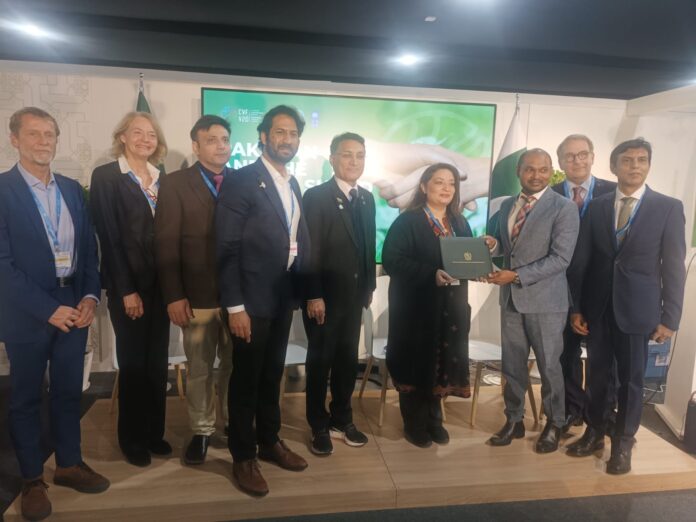Islamabad, Nov 20: Romina Khurshid Alam, Coordinator to the Prime Minister on Climate Change, emphasized the urgent need for climate-vulnerable developing countries to develop comprehensive strategies to address the loss and damage caused by climate change.
Highlighting the increasing severity of extreme weather events, rising sea levels, and droughts, she stressed the importance of integrating disaster risk financing into broader loss and damage efforts to build resilience and support long-term recovery.
She made these remarks during her keynote address at the event ‘Pakistan and the Global Shield’ at the Pakistan Pavilion in Baku, held on the sidelines of the COP29 global climate summit.
Alam explained that disaster risk financing is a proactive approach to managing the escalating costs of climate change.
By using innovative financial tools and data-driven strategies, governments and global partners can reduce climate risks, support recovery, and promote resilience.
She also pointed out that discussions with experts and officials from various sectors highlighted gaps in financial protection, particularly for public infrastructure, agriculture, and small businesses.
She praised Pakistan’s approach, stating it serves as a model for integrating disaster risk financing into broader efforts.
Aisha Humera Moriani, Secretary of the Ministry of Climate Change and Environmental Coordination, highlighted that over time, the need for viable financial protection has grown as climate change becomes a more critical public policy issue.
She noted that most large-scale natural disaster costs are retained by the government, with minimal insurance options available. Moriani stressed the urgency of closing the financial gaps in disaster response and pointed out that insurance penetration in Pakistan is less than 1% of the GDP.
Moriani also discussed the ministry’s recent joint assessment with the Sustainable Development Policy Institute and UN Development Programme. The assessment identified gaps in financial protection, leading to several proposals from national and provincial departments, as well as the private sector, which form Pakistan’s formal Request for Support to the Global Shield.
Hamza Haroon, Regional Director-South Asia from the Climate Vulnerable Forum Vulnerable 20 (CVF-V20), stressed the importance of disaster insurance programs for Pakistan’s most vulnerable communities. He recommended that engaging with insurance companies to introduce climate insurance products for these communities would be essential for building resilience.
Joerg Linke from the GIZ Competence Center Climate discussed the potential of shock-responsive social protection systems (SRSPs) in Pakistan. He explained that as the frequency of climate-related disasters increases, SRSPs are a critical tool for providing immediate relief and fostering long-term resilience for vulnerable populations.
